The Eagles, a legendary American rock band known for their hit song Hotel California, have been embroiled in a legal battle over the ownership of handwritten lyrics to some of their most popular songs. The case began with three collectors and auctioneers who were accused by New York prosecutors of conspiring to sell stolen pages from Eagles manuscripts, including the words to Hotel California. However, on Wednesday, March 7th, 2024, the Manhattan district attorney's office dropped all charges against the defendants in an unexpected collapse.
Eagles Embroiled in Legal Battle Over Ownership of Handwritten Lyrics to Popular Songs, Charges Dropped by Manhattan District Attorney's Office
New York, United States United States of AmericaThe Eagles are embroiled in a legal battle over the ownership of handwritten lyrics to some of their most popular songs.
Three collectors and auctioneers were accused by New York prosecutors of conspiring to sell stolen pages from Eagles manuscripts, including the words to Hotel California.
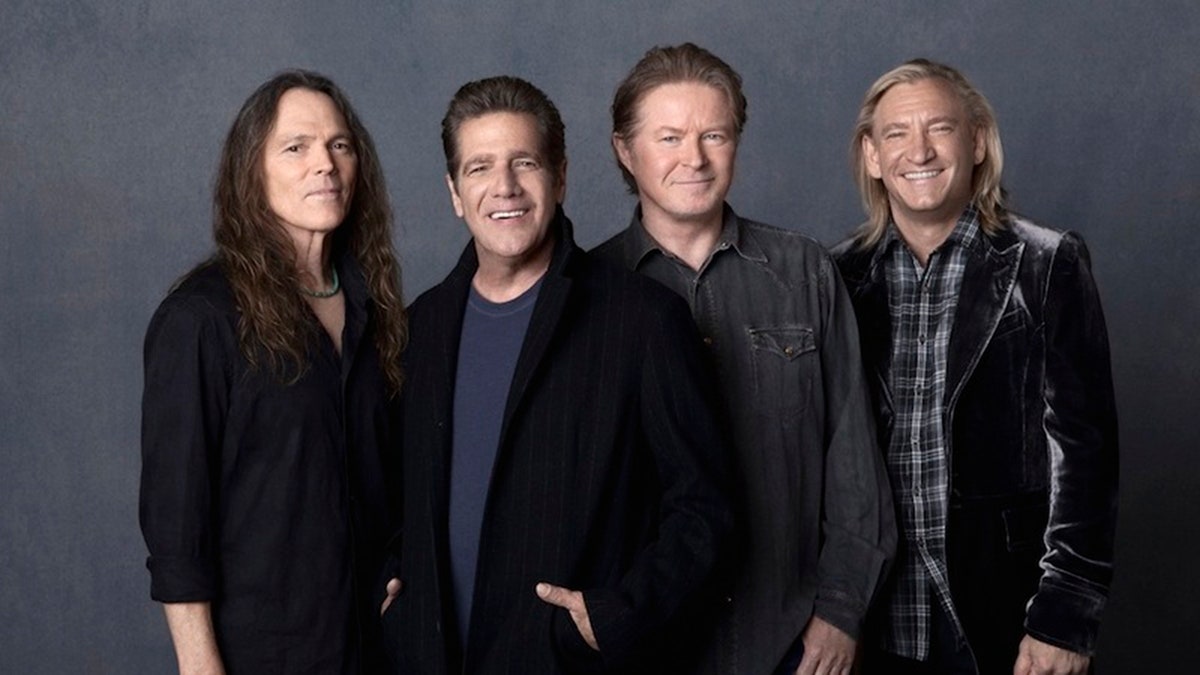
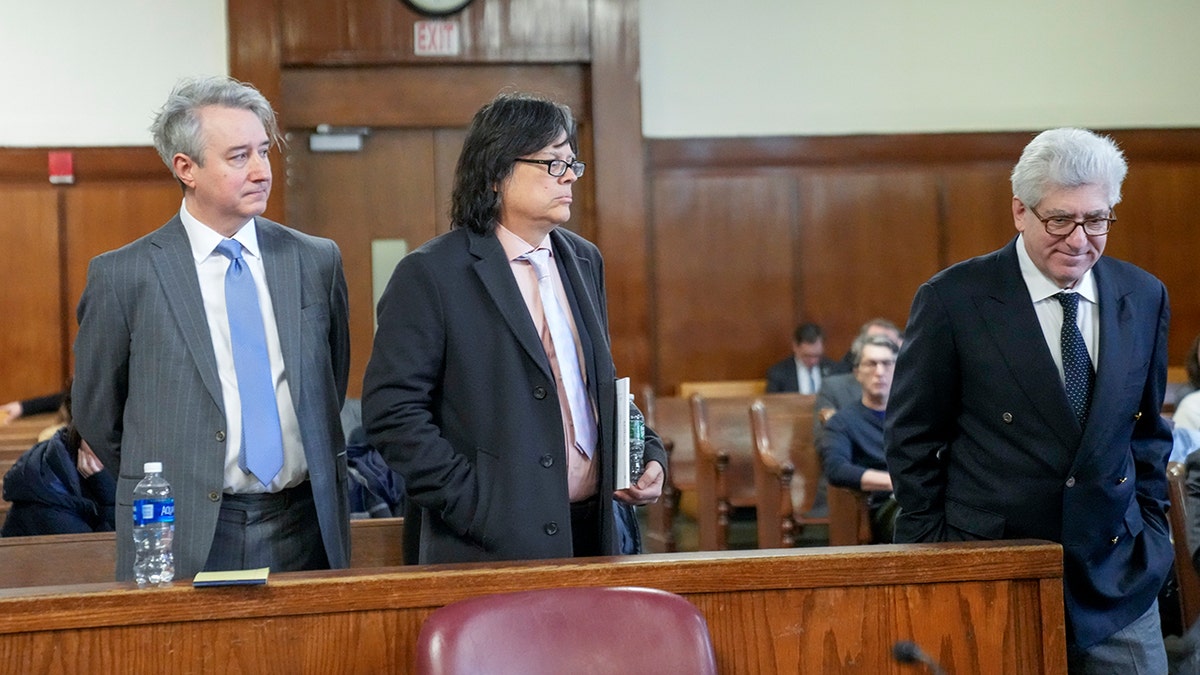
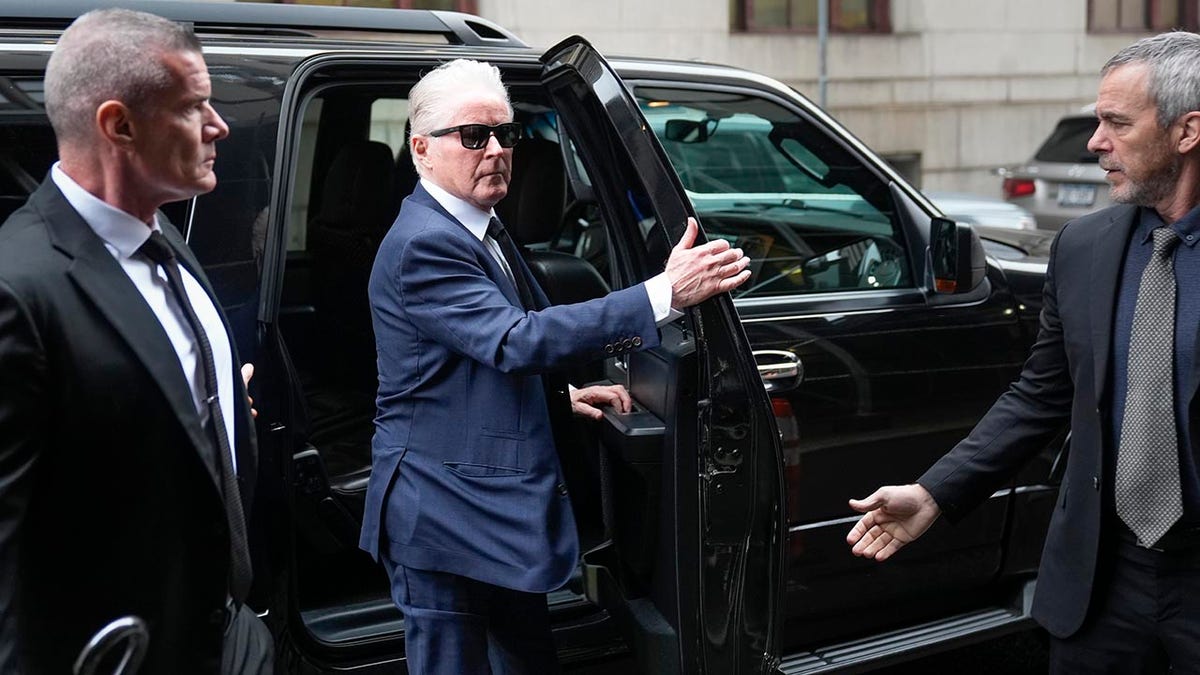
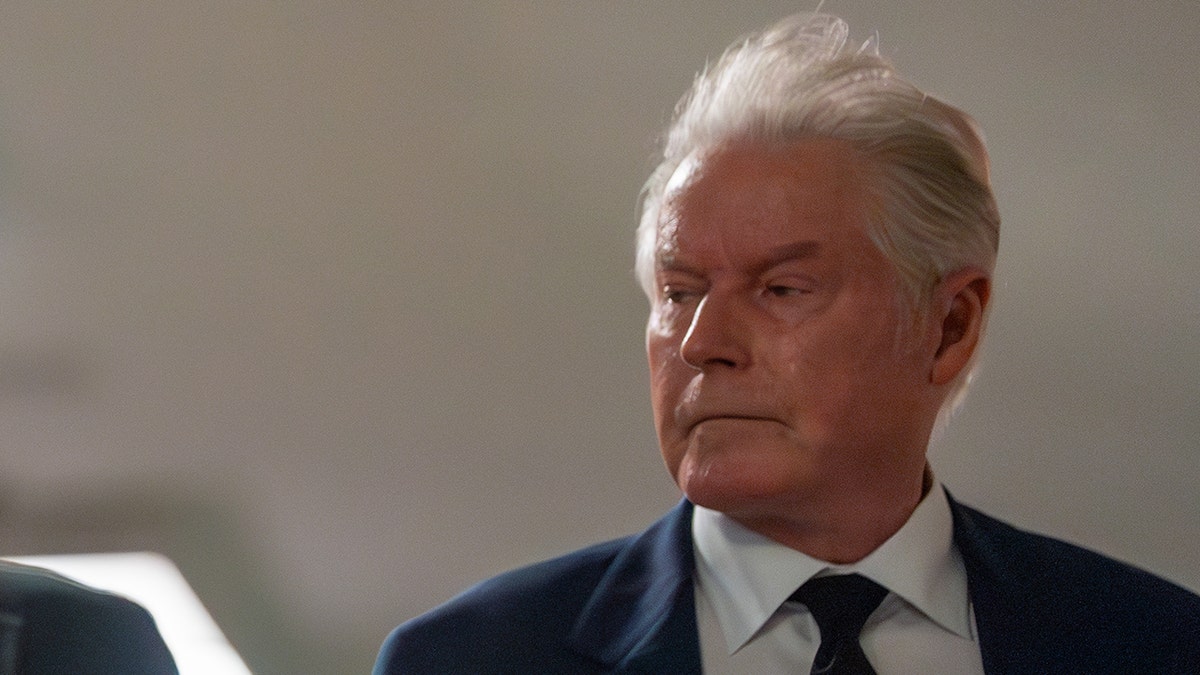
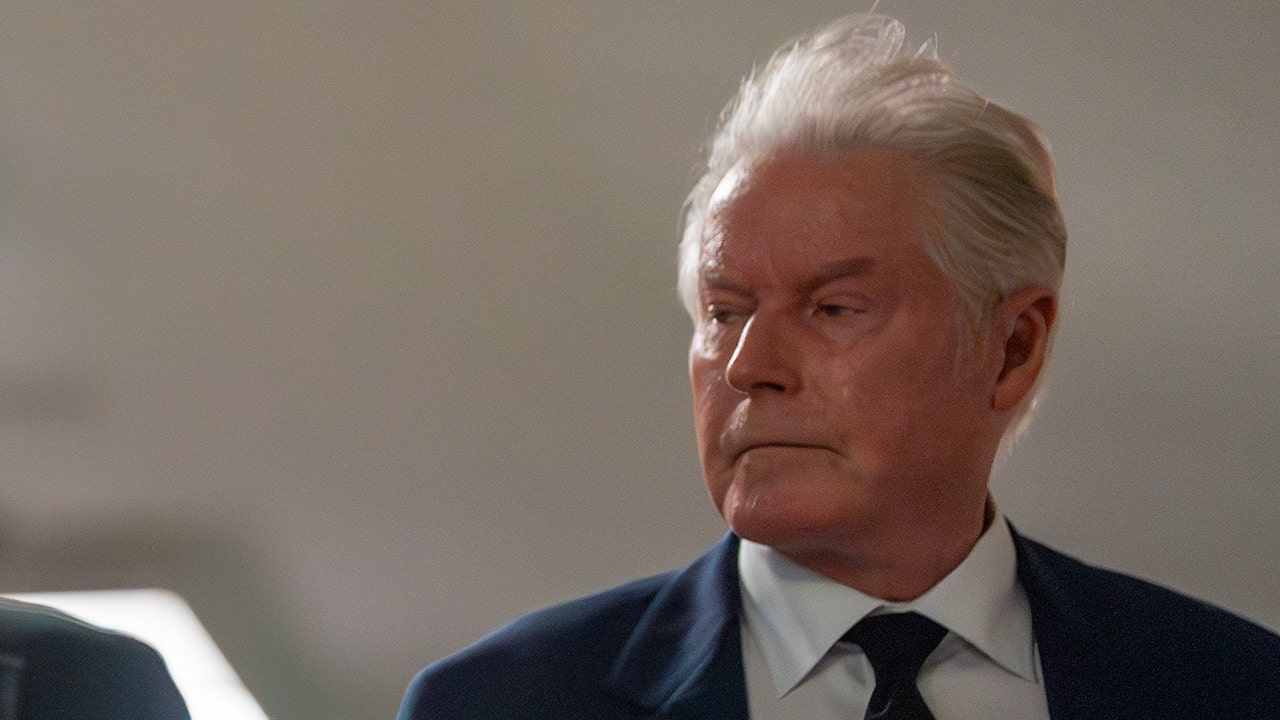
:max_bytes(150000):strip_icc():focal(749x0:751x2)/don-henley-trial-1-022624-d21ada5fb350469191138f2bc182f440.jpg)

Confidence
80%
Doubts
- It is unclear if any other parties were involved in this legal battle.
- The outcome of this case may have implications for future ownership disputes involving handwritten lyrics.
Sources
83%
Eagles co-founder Don Henley 'victimized' by 'Hotel California' trial dismissal: lawyer
Fox News Media Elizabeth Stanton Thursday, 07 March 2024 12:25Unique Points
- The trial over the alleged stolen handwritten drafts of Eagles hits like 'Hotel California' has come to an abrupt end. Prosecutors have dropped their criminal case mid-trial, citing newly available emails that defense lawyers said raised questions about the trial's fairness.
- Eagles co-founder Don Henley saw the case over the alleged stolen handwritten drafts of Eagles hits like 'Hotel California' abruptly dismissed on February 26th.
- Prosecutors agreed that defense lawyers had essentially been blindsided in recent days by getting 6,000 pages of communications involving Henley and his attorneys and associates. The material was provided to both sides only in the last few days, after Henley and his lawyers apparently made a late-in-the-game decision to waive their attorney-client privilege to keep legal discussions confidential.
- The trial had been underway since late February.
Accuracy
No Contradictions at Time Of Publication
Deception (100%)
None Found At Time Of Publication
Fallacies (85%)
None Found At Time Of Publication
Bias (85%)
The article is biased towards the victimization of Eagles co-founder Don Henley in the trial dismissal. The author uses language that dehumanizes and demonizes prosecutors for their actions, such as calling them 'blindsided' and 'obfuscated'. Additionally, the author presents only one side of the story without providing any context or alternative perspectives.- The trial over the alleged stolen handwritten drafts of Eagles hits like "Hotel California" has come to an abrupt end. Prosecutors have dropped their criminal case mid-trial, according to The Associated Press.
Site Conflicts Of Interest (50%)
None Found At Time Of Publication
Author Conflicts Of Interest (50%)
None Found At Time Of Publication
70%
Eagles’ lyrics case derailed by perjury allegations and new evidence
The Fixing Site: A Summary of the Article. Daniel Wu Thursday, 07 March 2024 05:56Unique Points
- ,
Accuracy
- The trial over the alleged stolen handwritten drafts of Eagles hits like 'Hotel California' has come to an abrupt end. Prosecutors have dropped their criminal case mid-trial, citing newly available emails that defense lawyers said raised questions about the trial's fairness.
- Eagles co-founder Don Henley saw the case over the alleged stolen handwritten drafts of Eagles hits like 'Hotel California' abruptly dismissed on February 26th.
Deception (50%)
The article is deceptive in several ways. Firstly, it states that the defendants were accused of conspiring to sell stolen Eagles manuscripts after they were stolen in the 1970s. However, this statement is misleading as there was no evidence presented at trial to prove that any of these men had anything to do with stealing the manuscripts. Secondly, it states that prosecutors accused Kosinski, Horowitz and Inciardi of conspiring to auction off the manuscripts in 2016. However, this statement is also misleading as there was no evidence presented at trial to prove any wrongdoing by these men regarding the sale or possession of the manuscripts. Thirdly, it states that prosecutors accused Kosinski, Horowitz and Inciardi of buying about 100 pages of Eagles manuscripts after they were stolen in the 1970s. However, this statement is also misleading as there was no evidence presented at trial to prove any wrongdoing by these men regarding the possession or sale of the manuscripts.- The article states that prosecutors accused Kosinski, Horowitz and Inciardi of buying about 100 pages of Eagles manuscripts after they were stolen in the 1970s. However, this statement is also misleading as there was no evidence presented at trial to prove any wrongdoing by these men regarding the possession or sale of the manuscripts.
- The article states that prosecutors accused Kosinski, Horowitz and Inciardi of conspiring to auction off stolen Eagles manuscripts in 2016. However, this statement is also misleading as there was no evidence presented at trial to prove any wrongdoing by these men regarding the sale or possession of the manuscripts.
- The article states that prosecutors accused Kosinski, Horowitz and Inciardi of conspiring to sell stolen Eagles manuscripts after they were stolen in the 1970s. However, this statement is misleading as there was no evidence presented at trial to prove any wrongdoing by these men regarding the theft or sale of the manuscripts.
Fallacies (85%)
None Found At Time Of Publication
Bias (100%)
None Found At Time Of Publication
Site Conflicts Of Interest (50%)
None Found At Time Of Publication
Author Conflicts Of Interest (0%)
None Found At Time Of Publication
80%
Prosecutors Drop Charges Mid-Trial in Eagles Lyrics Case as Don Henley's Lawyer Says He's Been 'Victimized'
People Magazine Thursday, 07 March 2024 12:31Unique Points
- The trial over the alleged stolen handwritten drafts of Eagles hits like 'Hotel California' has come to an abrupt end. Prosecutors have dropped their criminal case mid-trial.
- Prosecutors agreed that defense lawyers had essentially been blindsided in recent days by getting 6,000 pages of communications involving Henley and his attorneys and associates.
- The defendants knew the pages' chain of possession was shaky but sought to keep and sell them anyway, contriving to fabricate a provenance that would pass muster with auction houses.
Accuracy
- The criminal case centered on roughly 100 pages of Don Henley's handwritten song lyrics has been dropped by prosecutors.
- Don Henley took the stand in court and testified that he may have given Ed Sanders access to the lyric papers, but never gave him permission to keep them.
- The case dates back to the late 1970s when Don Henley began work with writer Ed Sanders on a band biography.
- Glenn Horowitz, former Rock & Roll Hall of Fame curator Craig Inciardi and rock memorabilia seller Edward Kosinski were all charged in the case but have been cleared.
- The attorney-client privilege was used to hide information that prosecutors thought would be damaging to their case.
- Don Henley has said he was shocked to see the pages surface at auctions in 2012 and bought back four pages for $8,500.
- Prosecutors reportedly agreed that defense lawyers had been blindsided by 6,000 pages of communications involving Don Henley and his attorneys over the last few days.
- Kosinski said he felt very good as he left court while Inciardi stated in a written statement that the next step is building back their reputations.
Deception (50%)
The article is deceptive in several ways. Firstly, it states that the case was dropped by prosecutors due to witnesses manipulating them with attorney-client privilege. However, this statement is misleading as there are no specific details about how the witness's communications were used to manipulate prosecutors or what information they hid.- The article states that Judge Curtis Farber told the court that witnesses manipulated prosecutors with attorney-client privilege, but there are no specific details about how they did so or what information was hidden.
- The article claims that Don Henley has been 'victimized' by the outcome of the case, but it does not provide any evidence to support this claim.
Fallacies (85%)
The article contains several fallacies. The first is an appeal to authority when it states that the attorney-client privilege is a foundational guardrail in our justice system. While this may be true, it does not necessarily mean that all cases should forsake this principle.- > Don Henley's lawyer claims he has been victimized by the unjust outcome of the case.
Bias (85%)
The article is biased towards Don Henley and his legal team. The author uses language that portrays the prosecutors as manipulative and dishonest for dropping charges in the middle of trial. Additionally, there are multiple instances where the author quotes Don Henley's attorney using phrases such as 'victimized' which is a loaded word.- Dan Petrocelli, Henley's attorney tells PEOPLE in a statement.
- Don Henley on Feb. 26, 2024 in court in New York City. YUKI IWAMURA/AFP via Getty
- Inciardi said in a written statement that the next step is building back our reputations.
- The case was abruptly dropped in the middle of trial
- The outlet reported that Kosinski said he felt 'very good' as he left court
Site Conflicts Of Interest (100%)
None Found At Time Of Publication
Author Conflicts Of Interest (0%)
None Found At Time Of Publication
93%
Charges are dropped midtrial in 'Hotel California' lyrics case. Don Henley plans to fight on
The Associated Press News Wednesday, 06 March 2024 15:08Unique Points
- The case was highly unusual and centered on the disputed ownership of a cache of hand-drafted lyrics to Eagles hits.
- In the middle of trial, New York prosecutors abruptly dropped their case against three collectibles experts who had been accused of scheming to hang onto and peddle the pages.
- Prosecutors agreed that defense lawyers had essentially been blindsided by 6,000 pages of communications involving Henley and his attorneys and associates.
- The defendants knew the pages' chain of possession was shaky but sought to keep and sell them anyway, contriving to fabricate a provenance that would pass muster with auction houses and stave off Henley's demands for the return of the handwritten sheets.
- One of Kosinski's lawyers, Scott Edelman, said they also were going to evaluate next steps.
Accuracy
No Contradictions at Time Of Publication
Deception (100%)
None Found At Time Of Publication
Fallacies (85%)
The article contains an example of a false dilemma fallacy. The prosecution presented the defendants with two options: either they were guilty of stealing the lyrics or they were innocent. However, there may have been other possibilities that could explain their possession of the pages without them being stolen.- The prosecution presented a false dilemma by stating that if Don Henley was not guilty of theft then he must be innocent.
Bias (85%)
The article is biased towards the defendants in the case. The author presents a one-sided view of events and portrays the prosecution as manipulated by fame and fortune. The language used to describe Henley's actions also implies that he was acting unethically, which may not be entirely accurate.- The defense maintained that Henley gave the lyrics pages decades ago to a writer who worked on a never-published Eagles biography and later sold them to Horowitz. He, in turn, sold them to Inciardi and Kosinski,
Site Conflicts Of Interest (100%)
None Found At Time Of Publication
Author Conflicts Of Interest (0%)
None Found At Time Of Publication